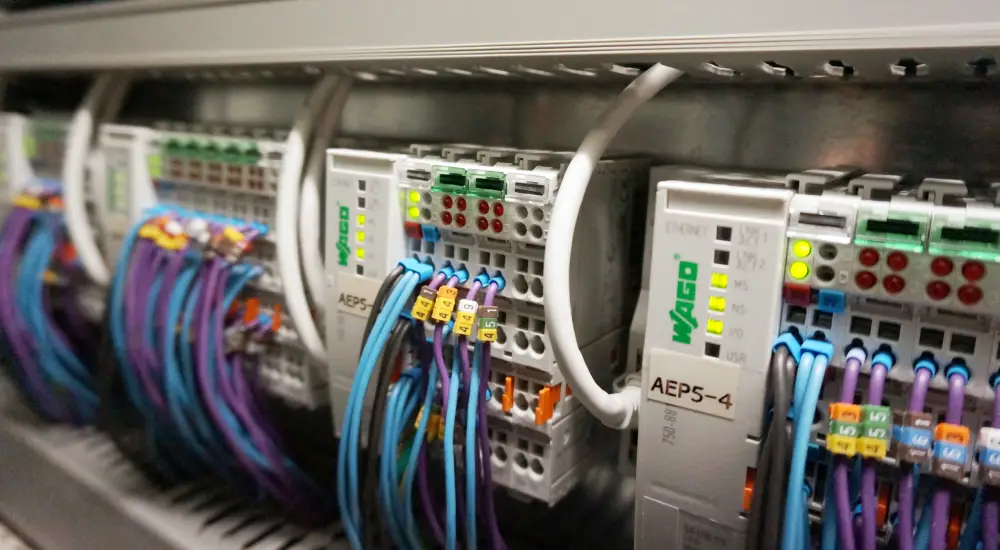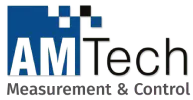
PLC Programming
AMTech has over two decades of experience implementing industrial automation solutions utilizing Programmable Logic Controllers (PLCs). We develop new PLC systems from the ground up and troubleshoot, update, and add to existing PLC systems.
AMTech delivers connected solutions, seamlessly integrating PLC control systems with other devices and systems:
- Robots
- Vision Systems
- Drives and Servos
- RFID and RTLS
- Edge and IIoT
- HMI and SCADA
- MES and ERP
We work with many industrial network protocols and hardware layers (PROFIBUS, PROFINET, Wireless PROFINET, Ethernet I/P, DeviceNet, Modbus, ModbusTCP, RS-232, RS-485, SERCOS, CAN, EtherCAT, and others).
AMTech also provide expertise in safety PLC programming with safety I/O, safety device integration, and failsafe communication protocols.
In addition to factory automation programming, we also develop software libraries, APIs, AOIs, and function blocks that enable end users to easily integrate our clients’ hardware products into a PLC platform.
AMTech's PLC Solutions
AMTech develop new PLC solutions from start to finish including functional specification development, offline programming, and onsite commissioning. We offer simulation and virtual commissioning services to optimize startup time. AMTech consults on automation component selection, assists in programming standards development, and provides training for our clients.
PLC Solutions our team provides include:
- PLC Cabinet Coordinated
- Motion control and servo systems
- Continuous and Batch Process Control
- Discrete assembly, packaging, and machining
- Material handling and storage systems
- Specialty processes and equipment
AMTech works with manufacturers to provide plant-wide and line-level programming solutions. We work with OEMs and custom machine builders to provide expert programming for their equipment. AMTech also provide consulting between manufacturers and their OEMs to ensure optimal interoperability.
We focus on well-designed and structured, modular PLC code appropriate for any factory. Our reusable code utilizes function and class-based architectures and adheres to IEC 61131-3 standards including structured text, function blocks, and sequential flow charts. The benefit is a flexible system that is easier to understand, debug, and modify for future needs.
We have libraries of previously developed, reusable code available for new systems that help reduce development cost and time.

